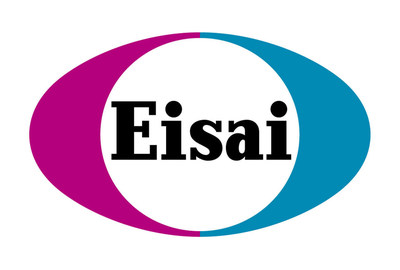Eisai Continues MOMENTUM 2 Expanded Access Program (Study 405) for Patients Previously Prescribed Lorcaserin to Treat Dravet and Other Refractory Epilepsies [30-September-2020] WOODCLIFF LAKE, N.J. , Sept. 30, 2020 /PRNewswire/ -- Eisai Inc. announced today that, after consulting with the U.S. Food and Drug Administration (FDA), the Company has initiated a Phase 3 cli
|
WOODCLIFF LAKE, N.J., Sept. 30, 2020 /PRNewswire/ -- Eisai Inc. announced today that, after consulting with the U.S. Food and Drug Administration (FDA), the Company has initiated a Phase 3 clinical study, MOMENTUM 1 (Study 304, NCT number pending), of lorcaserin in patients with Dravet syndrome, a severe type of epilepsy characterized by prolonged seizures that begin in the first year of life.1 It is a rare condition that affects one in 20,000 to 40,000 people worldwide.1 In addition to the MOMENTUM 1 Study, Eisai is continuing the lorcaserin expanded access program (EAP) (Study 405, NCT04457687), also known as the MOMENTUM 2 Study.2 The new Phase 3 clinical trial, MOMENTUM 1, is a multicenter, double-blind, randomized, placebo-controlled, parallel-group study with an open-label extension phase of lorcaserin as an adjunctive treatment in subjects with Dravet syndrome. Lorcaserin is a selective serotonin 5-HT2c receptor agonist. Stimulation of 5-HT2c receptors with lorcaserin may increase GABA-mediated inhibition and result in reduced seizure activity in Dravet syndrome patients. Target enrollment for MOMENTUM 1 is 58 subjects who will be randomized and evaluated at approximately 20 sites in the United States. 3 "We commend the FDA for recognizing the tremendous unmet medical needs of patients living with Dravet syndrome and for providing Eisai with the opportunity to conduct the Phase 3 MOMENTUM 1 clinical study," said Lynn Kramer, MD, Chief Clinical Officer, Neurology Business Group. "This important research exemplifies our human health care mission as it was prompted by the limited number of approved treatments for this condition along with the voices of patients, caregivers, and health care professionals who reported their clinical experience with lorcaserin in this severe form of epilepsy." The primary objective of the trial is to demonstrate that lorcaserin has superior efficacy compared to placebo on percent change in frequency of convulsive seizures per 28 days in subjects with Dravet syndrome.3 The key secondary objective is to evaluate whether lorcaserin has superior efficacy compared to placebo on the 50% responder rate (percent of subjects with at least 50% reduction in frequency of convulsive seizures per 28 days compared to baseline). Other secondary objectives include:
After the voluntary withdrawal of BELVIQ® (active ingredient lorcaserin) from the market for the obesity indication in February 2020, Eisai received multiple requests from patients, caregivers, and health care professionals for continued access to patients who were prescribed BELVIQ to help treat Dravet syndrome, as well as other refractory epilepsies. While lorcaserin was not marketed for, nor approved by the FDA for use in these patients, Eisai, after consultation with the FDA, strongly believes it is important that these vulnerable patients continue to have access to lorcaserin to the extent their health care providers believe continued access is medically appropriate. As a result, Eisai is also continuing the MOMENTUM 2 (Study 405), a centralized EAP that includes patients with Dravet syndrome and other refractory epilepsies who were prescribed lorcaserin by their treating physician prior to the market withdrawal in February 2020. The MOMENTUM 2 includes a PK sub-study, a retrospective chart review, and prospective data collection to gather information on seizure frequency, PK, and safety with lorcaserin exposure. The dose of lorcaserin will be flexible during the program. Dosing and visit intervals for the EAP will be as clinically indicated per the judgment of the treating physician. Information about the MOMENTUM 2 (NCT04457687) is available on ClinicalTrials.gov.2 "On behalf of Dravet syndrome patients and caregivers, we thank the FDA and Eisai for continuing to make lorcaserin available to appropriate patients in this vulnerable population through the expanded access program," said Orrin Devinsky MD, Professor of Neurology at the NYU Grossman School of Medicine and MOMENTUM 1 lead investigator. "There is an urgent need to find new treatment options for Dravet syndrome, and we hope the new MOMENTUM 1 study will yield positive clinical outcomes for participants and a potential new therapy." About Dravet Syndrome and Refractory Epilepsies About Lorcaserin About Eisai Inc. Eisai is a fully integrated pharmaceutical business that operates in two global business groups: oncology and neurology (dementia-related diseases and neurodegenerative diseases). Our U.S. headquarters, commercial and clinical development organizations are located in New Jersey; our discovery labs are in Massachusetts and Pennsylvania; and our global demand chain organization resides in Maryland and North Carolina. To learn more about Eisai Inc., please visit us at https://us.eisai.com and follow us on Twitter and LinkedIn. References
Contact: Eisai Inc.
SOURCE Eisai Inc. |





